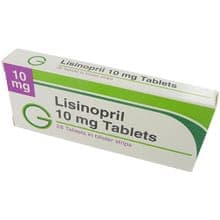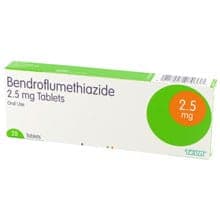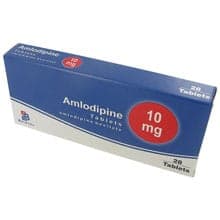Login to your account
- Prescription included
- Genuine medication
- All-inclusive service - No hidden fees
- Free next-day delivery
How do blood pressure medicines work?
Elevated blood pressure, or “hypertension”, is a chronic condition that can cause serious complications if left undiagnosed and untreated. According to the World Health Organization (WHO) Trusted source World Health Organization (WHO) Government Source International Public Health Information Go to source , it is estimated that over 1.2 billion adults internationally suffer from the condition. Of that 1.2 billion, a frightening 46% are undiagnosed and unaware of their poor health.
With numbers like this, it is imperative that everyone get their blood pressure tested, especially if they fall into certain high risk groups, for example, those who:
To learn more about high blood pressure, the treatments you can take, and how those treatments work, read on.
What are blood pressure medications trying to prevent?
Simply put, hypertension is where the blood travelling through your arteries overly increases in pressure, pressing against the walls of your arteries. If this pressure persists without intervention it can cause complications like angina, heart attack, stroke and heart failure. These complications all occur because the pressure causes arteries to burst or blood to become wrongly directed in your circulatory system.
As there are often no symptoms of hypertension, it has been dubbed the “silent killer”. If you do experience symptoms, these are likely to be less apparent.

What are the signs of an emergency?
The symptoms that you do experience can signal seriously high blood pressure levels. One example of this is a “hypertension headache”. The pain generally pulsates, or throbs, and gets worse with exercise as your blood flow increases. Alongside this, you may notice changes to your vision.
Other symptoms that indicate very high blood pressure include fatigue, nosebleeds, chest pain and irregular heartbeats.
So, how do blood pressure meds work?
Different types of medication work in different ways.
| Medication types | How it works | Side effects* | What it looks like |
|---|---|---|---|
| ACE-inhibitors | Stops effects of angiotensin II | Cough, fatigue, hyperkalemia |  |
| Diuretics | Encourages urination, reducing blood volume | Dehydration, muscle cramps, dizziness |  |
| Calcium channel blockers | Prevents blood vessel contraction | Dizziness, fatigue, headache |  |
| Beta-blockers | Stops effects of epinephrine and norepinephrine | Fatigue, light-headedness, cold extremities | |
| Alpha-blockers | Stops effects of norepinephrine | Headaches, dizziness, rapid changes in blood pressure |
*Examples of common reactions only.
ACE-inhibitors
ACE stands for angiotensin-converting enzyme. Basically, this family of medications prevents your body from converting an enzyme called angiotensin I into angiotensin II.
Angiotensin II narrows blood vessels and increases blood pressure. It also prevents the reuptake of a stress hormone called norepinephrine. Norepinephrine, along with adrenaline, increases heart rate - bad news for hypertension sufferers. Thirdly, Angiotensin II limits how much sodium and water is excreted from the body in urine. And finally, Angiotensin II has been linked Trusted source National Center for Biotechnology Information (NCBI) Government Source Biomedical Research and Literature Go to source to the enlarging of heart and smooth muscle cells.
All in all, Angiotensin II is a damaging enzyme if you have high blood pressure.
Angiotensin-converting enzyme (ACE) inhibitors are also prescribed to treat other renal and cardiovascular diseases, for example, heart failure, acute coronary syndrome, diabetes and nephrotic syndrome. All of the actions mentioned above are just as damaging for these conditions.
Well-known ACE-inhibitors include:
- benazepril
- captopril
- enalapril
- fosinopril
- lisinopril
- perindopril
- ramipril
There are different dosages for all of these brands, however, all are taken orally. The prescribing doctor will give you more information.
A related class of medications is angiotensin II receptor antagonists (ARBs). Rather than completely stop the production of angiotensin II, ARBs limit how much is converted. Examples include:
- losartan potassium
- candesartan
- olmesartan
- valsartan
Diuretics
If you have any familiarity with sports medicine, particularly any activity that requires an athlete to be weighed, you will know that diuretics make you wee. They are also known as “water pills”.
Urination is great for a variety of functions: it allows your body to clear out waste products; it helps you flush out toxins and bacteria; and it is an efficient way of losing weight (or volume). Athletes exploit the last function to give them advantage against opponents. In medicine, diuretics are also used for how they encourage diuresis (the medical term for more urination).
So how does this affect blood pressure? Well, when you wee more, the amount of water and sodium in your body is reduced. In turn, the volume of blood being pumped around your body is lowered. With less blood in your circulatory system, the pressure on your arteries is reduced. But don’t worry, you will still be left with sufficient blood in your body - hypertensives have an excess.
Examples of thiazide diuretics you might be prescribed include:
- Aldactone (spironolactone)
- Bumex (bumetanide)
- Demadex (torsemide)
- Esidrix (hydrochlorothiazide)
- Lasix (furosemide)
- Zaroxolyn (metolazone)
- indapamide
Calcium channel blockers (CCBs)
As their name indicates, CCBs interfere with the movement of calcium into your blood vessel wall cells. Along with hypertension, they are prescribed for angina, arrhythmia, cluster headaches and Raynaud’s phenomenon. The latter is an unusual condition where your blood vessels constrict in cold environments or when you are emotionally stressed.
Calcium is necessary for tiny muscles surrounding blood vessels to contract. Blood vessels naturally contract to increase blood pressure - however, if you have hypertension, your blood vessels are contracting too much. Calcium travels through miniscule pores in your cells called ion “channels”. By blocking these channels, blood vessel cells receive less calcium and cannot as easily contract. The result is improved blood flow.
There are two types of CCBs (though both have the same primary action): dihydropyridine calcium-channel blockers and non-dihydropyridines*. Dihydropyridine CCBs include:
- amlodipine
- nifedipine
- clevidipine
- felodipine
These only help relax and widen blood vessels.
In comparison, non-dihydropyridine CCBs, include:
- verapamil
- diltiazem
These also relax and widen blood vessels, though they have an additional effect, which is to slow the heart rate. For certain cardiovascular conditions, a slower heart is advantageous.
If you are unsure which is best for you, speak to your doctor or healthcare provider.
*Also known as “rate-limiting” calcium-channel blockers.
Beta blockers
Most people will have heard of beta blockers; this is due to the number of conditions that they treat. For example, you, or someone you know, may be prescribed them for:
- angina
- atrial fibrillation
- heart failure
- heart attack
- anxiety
- migraine
- hyperthyroidism
And of course, hypertension. Beta blockers are a versatile medication.
So how do they work? These medications slow the pace of your heart. All the conditions listed above, and many more unlisted, benefit from a slowed heart rate (but not too slow). By lowering your heart rate and the power of each beat, blood is pumped through your body at a reduced speed. For hypertension, this means there is less pressure on your arteries.
Specifically, beta-blockers work by preventing the hormone epinephrine from affecting your heart. Epinephrine (also known as adrenaline) binds to beta receptors, B1 and B2, and increases how much the heart contracts. By getting in the way and binding to beta receptors first, beta blockers inhibit epinephrine. A by-product of the slowed heartbeat is that there is less demand for oxygen in the heart, resolving issues like angina.
Examples of beta blockers include:
- propranolol
- sotalol
- carvedilol
- atenolol
- bisoprolol
- metoprolol
Alpha blockers
One form of medication, closely related to beta blockers, is alpha blockers. Whereas beta blockers prevent the over-contraction of your heart, alpha blockers work on your arteries and veins. Both classes of drug share similar mechanisms of action, except alpha blockers intercept the hormone norepinephrine instead of epinephrine.
Alpha blockers you might be prescribed include:
- alfuzosin
- doxazosin
- silodosin
So, what next?
As you can see, there are many different types of medication that lower blood pressure, all of which work in their own way. Some of these will be more effective than others, and some of them will be prescribed as a combination.
euroClinix’s available blood
pressure medications
Go to consultationYour doctor is the best person to contact if you think you need blood pressure medication. They will first want to conduct an exam to confirm the diagnosis. To do this, they will use a device known as a sphygmomanometer, which consists of a stethoscope, dial, pump and arm wrap. The arm wrap will constrict the blood flow in your arm so the stethoscope and dial can detect the frequency and strength of your pulse. Two blood pressure readings will be taken; systolic and diastolic pressures. The first is the pressure of your heart pushing blood out, the second is the resting pressure between beats. If you have a measurement of “140 over 90”, you have high blood pressure.

If you have a diagnosis of hypertension, your doctor may prescribe one of the above medications. It is important to understand that different people require different first-line treatments - this may be due to medical history (e.g., possible side effects) lifestyle and background (e.g., age and ethnicity). Alternatively, they may recommend dietary and lifestyle changes first.
Further reading

Understanding and managing the side effects of ACE inhibi...
Reviewed by Dr. Caroline Fontana
The best foods for lowering blood pressure
Reviewed by Dr. Caroline Fontana
Blood pressure chart: How to read blood pressure
Reviewed by Dr. Caroline FontanaSelect
medicationFill out a short
medical formDoctor issues
prescriptionMedication sent
from pharmacy
